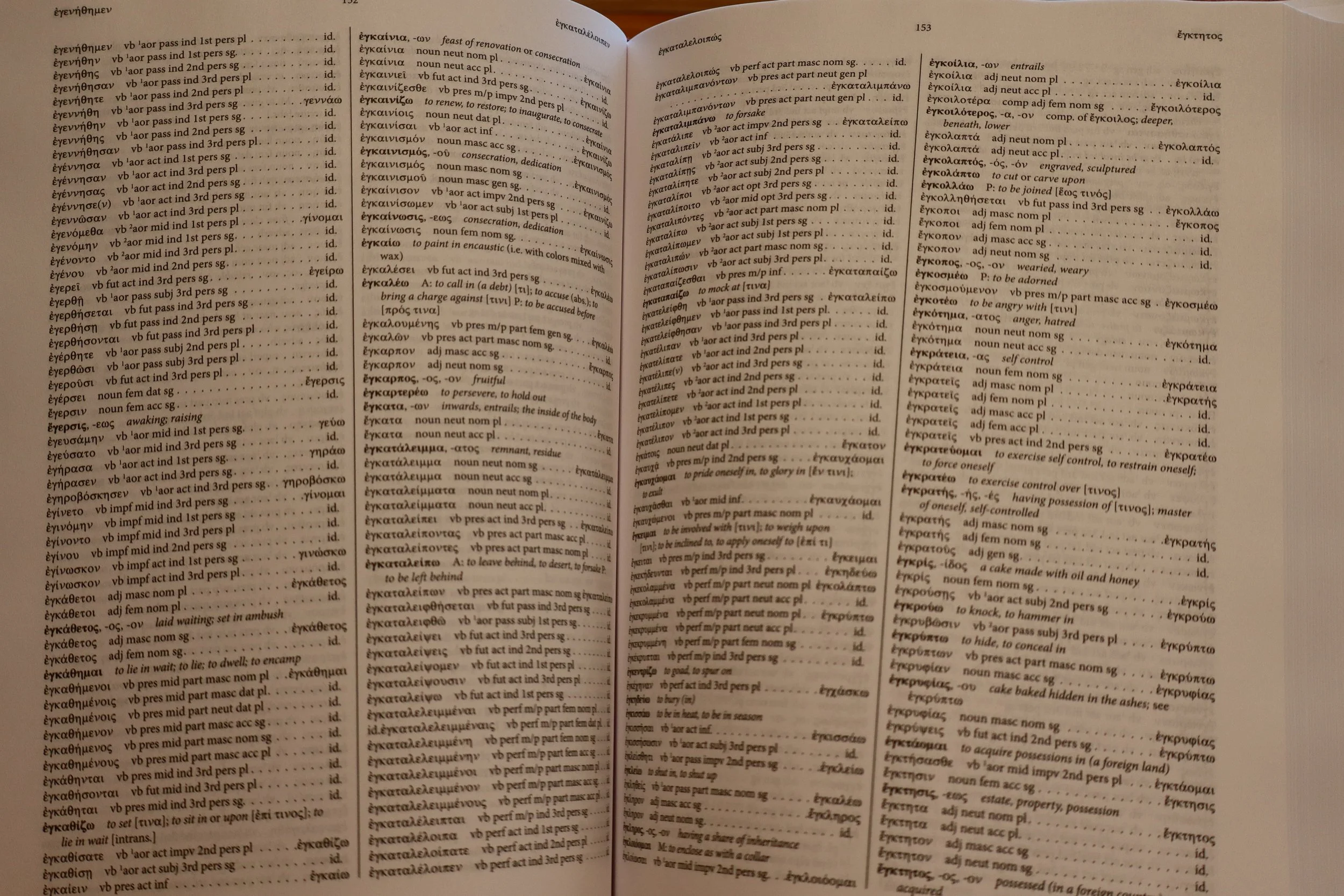Unraveling Ancient Texts: An In-Depth Look at Bernard Taylor's "Analytical Lexicon to the Septuagint: Expanded Edition
Are you looking for a book that can help you understand every word in the Greek Septuagint translation of the Bible? The Analytical Lexicon to the Septuagint: Expanded Edition by Bernard Taylor is the book for you. It is a critical resource for anyone engaged in the study of the Septuagint (LXX), the Greek translation of the Hebrew Bible. This lexicon offers detailed morphological and lexical information on every word found in the standard Rahlfs-Hanhart edition of the LXX, making it indispensable for scholars, students, and anyone interested in the intersection of Greek and Hebrew scriptures.
Published by Hendrickson Publishers, the "Analytical Lexicon to the Septuagint: Expanded Edition" is an exhaustive resource that lists every Greek word form found in the standard Rahlfs edition of the Septuagint (LXX). Bernard Taylor, a respected scholar in Septuagint studies, has crafted this lexicon to serve as a bridge for those navigating the complexities of ancient Greek used in the LXX.
Comprehensive Coverage and Parsing
One of the standout features of Taylor's lexicon is its exhaustive coverage of every Greek word in the LXX, fully parsed with corresponding morphological information. This allows readers to identify the form and function of words quickly. Additionally, the lexicon integrates definitions from A Greek-English Lexicon of the Septuagint by Lust, Eynikel, and Hauspie, providing users with accurate and contextually relevant meanings
A Practical and Portable Resource
Despite its extensive content, the lexicon remains portable and user-friendly. Its alphabetical arrangement makes it easy to find entries, even for those who may not have advanced Greek skills. While the lexicon is particularly useful for reading the Septuagint, it also aids New Testament studies by offering insights into the Greek vocabulary shared between the two corpora.
Supplement to Digital Tools
Although many electronic resources offer similar lexical data, Taylor’s lexicon stands out for those who prefer traditional print resources. The process of manually looking up words helps reinforce learning and deepens the understanding of linguistic nuances in a way that digital tools may not fully replicate.
Essential for Contextual Studies
Taylor's lexicon not only provides lexical and morphological details but also offers brief contextual explanations for certain words. These insights help users understand how specific words function in different syntactic and semantic contexts within the Septuagint, enhancing the study of biblical Greek in its historical and theological framework.
For students and scholars of biblical Greek, Bernard Taylor's Analytical Lexicon to the Septuagint: Expanded Edition is a vital tool. It bridges the gap between classical Greek lexicons and the specific needs of LXX readers, making it an essential addition to any serious biblical studies library. Whether you're translating passages or conducting in-depth lexical research, this lexicon is a resource you’ll turn to repeatedly.
Bernard Taylor's "Analytical Lexicon to the Septuagint: Expanded Edition" is an essential tool for scholars, theologians, and students engaged in the study of the Septuagint, the Greek translation of the Hebrew Bible. This article explores the features, significance, and impact of this scholarly work on the understanding of one of the most influential texts in biblical history.
Key Features:
Comprehensive Coverage: Taylor's lexicon includes every Greek word from the LXX in its inflected form, fully parsed. This means each word is broken down into its grammatical components, making it easier for users to understand its function in the sentence.
Definitions and Glosses: Unlike some lexicons that only provide parsing, this expanded edition also includes English definitions for each Greek word, sourced from Lust, Eynikel, and Hauspie's "A Greek-English Lexicon of the Septuagint." These glosses offer literal, metaphorical, and contextual meanings, which are crucial for nuanced translation and interpretation.
Corrections and Updates: This edition corrects errors from the original 1994 version and adds new material, ensuring the lexicon is both accurate and up-to-date.
Accessibility: Despite its depth, the lexicon is designed for portability, making it a practical tool for both classroom settings and personal study. Its hardcover format and clear typography enhance usability.
Significance in Septuagint Studies:
Bridge Between Languages: The Septuagint is pivotal because it was the version of the Old Testament most often quoted in the New Testament. Understanding its Greek, which differs from classical or New Testament Greek, is crucial for biblical scholarship. Taylor's work aids in this understanding, offering insights into the vocabulary and thought forms unique to the LXX.
Educational Tool: For students and scholars, this lexicon demystifies the Greek of the Septuagint, speeding up the process of learning and translating. It's particularly beneficial for those who might have a background in New Testament Greek but need to adapt to the LXX's distinct linguistic features.
Research Aid: Researchers can delve deeper into textual studies, comparative linguistics, and theological interpretations with a reliable tool that highlights the nuances of Greek words used in the Septuagint.
Positive Reception: Users often praise the lexicon for its ease of use, the clarity it brings to translation tasks, and its role in cutting down the time needed for manual parsing. It's particularly lauded for those with intermediate Greek knowledge who wish to expand into Septuagint studies.
Versatility: The lexicon has been noted for its utility not just in Septuagint studies but also when encountering rare or obscure words while reading the Greek New Testament.
Academic and Theological Implications: By providing a more accessible route to understanding the Septuagint's Greek, Taylor's work contributes to a broader, more accurate interpretation of biblical texts, affecting theological discourse, biblical translation projects, and academic research.
Bernard Taylor's "Analytical Lexicon to the Septuagint: Expanded Edition" stands as a testament to the ongoing need for detailed, scholarly tools in biblical studies. It not only facilitates a deeper engagement with the Septuagint but also enriches the broader study of biblical Greek, making it an invaluable asset for anyone committed to exploring the depths of ancient texts. Whether for academic research, theological study, or personal enrichment, this lexicon opens up new avenues for understanding and appreciating the Septuagint's place in biblical literature.

